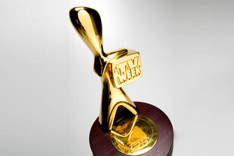Night of nights?
 Do the Logies have merit or are they merely an exercise in ego stroking? In a feature that first appeared in Encore, Lee Zachariah finds out.
Do the Logies have merit or are they merely an exercise in ego stroking? In a feature that first appeared in Encore, Lee Zachariah finds out.
The Logie Awards are legit, and by God they want you to know it. This year’s official announcement of nominees, sent out in a lengthy press release, contained a ‘Logies voting myths busted’ section, in which the outrageous claims of a hypothetical critic are addressed, point by point.
“Only teenagers vote in the Logies,” claims the unnamed cynic.
“Um, no,” articulates the sentient awards ceremony. “In fact, almost the opposite is true. This year, 87 per cent of the people who voted in the TV Week Logie Awards were aged 18 or older.”


I challenge anyone in the ad world to point the finger at the logies for being an award created for ego stroking.
Who is hosting this year? I dont know. Interesting to see in MKR can take viewers away from the Logies and The Voice
The real question is – does anyone really give a cr*p about the Logies? I cannot think of a single person, but I assume they are out there. Hello?
Obviously still draws a crowd judging by the ratings. Hamish and sandy were childish as usual. I m just glad neither won the gold. I tried to watch offspring but found it boring and could not follow the story.
Get some cameras into the after-party and the Logies might be worth watching…